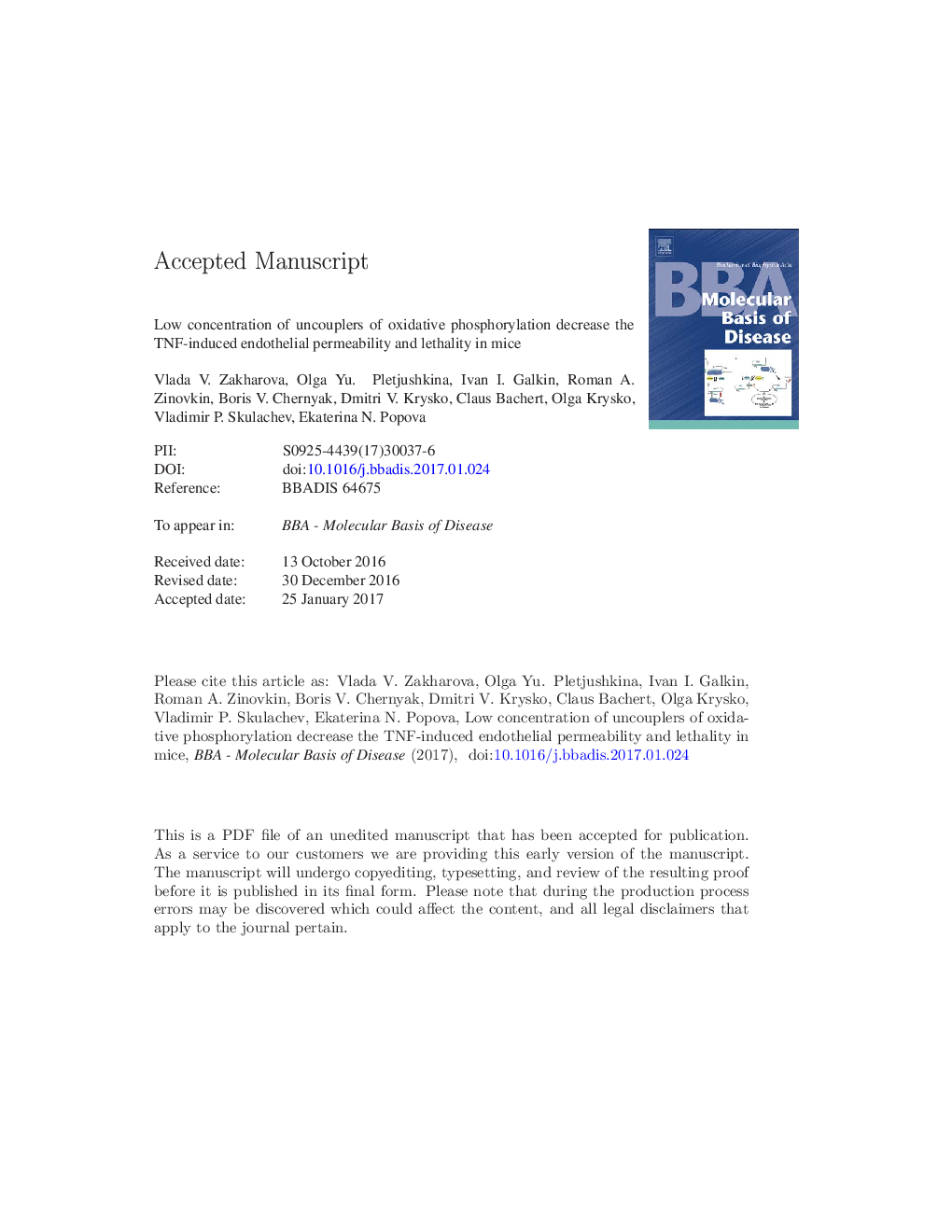| Article ID | Journal | Published Year | Pages | File Type |
|---|---|---|---|---|
| 5500974 | Biochimica et Biophysica Acta (BBA) - Molecular Basis of Disease | 2017 | 30 Pages |
Abstract
Mitochondrial dysfunctions occur in many diseases linked to the systemic inflammatory response syndrome (SIRS). Mild uncoupling of oxidative phosphorylation is known to rescue model animals from pathologies related to mitochondrial dysfunctions and overproduction of reactive oxygen species (ROS). To study the potential of SIRS therapy by uncoupling, we tested protonophore dinitrophenol (DNP) and a free fatty acid (FFA) anion carrier, lipophilic cation dodecyltriphenylphosphonium (C12TPP) in mice and in vitro models of SIRS. DNP and C12TPP prevented the body temperature drop and lethality in mice injected with high doses of a SIRS inducer, tumor necrosis factor (TNF). The mitochondria-targeted antioxidant plastoquinonyl decyltriphenylphosphonium (SkQ1) which also catalyzes FFA-dependent uncoupling revealed similar protective effects and downregulated expression of the NFκB-regulated genes (VCAM1, ICAM1, MCP1, and IL-6) involved in the inflammatory response of endothelium in aortas of the TNF-treated mice. In vitro mild uncoupling rescued from TNF-induced endothelial permeability, disassembly of cell contacts and VE-cadherin cleavage by the matrix metalloprotease 9 (ÐÐÐ 9). The uncouplers prevented TNF-induced expression of MMP9 via inhibition of NFκB signaling. Water-soluble antioxidant Trolox also prevented TNF-induced activation and permeability of endothelium in vitro via inhibition of NFκB signaling, suggesting that the protective action of the uncouplers is linked to their antioxidant potential.
Keywords
Related Topics
Life Sciences
Biochemistry, Genetics and Molecular Biology
Ageing
Authors
Vlada V. Zakharova, Olga Yu. Pletjushkina, Ivan I. Galkin, Roman A. Zinovkin, Boris V. Chernyak, Dmitri V. Krysko, Claus Bachert, Olga Krysko, Vladimir P. Skulachev, Ekaterina N. Popova,
